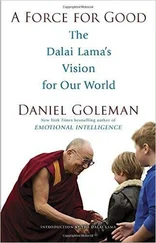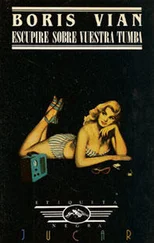It is part of Danilo Kiš's achievement to have created these two more or less sympathetic characters, who can be accused of no sins more serious than self-delusion. The Communist ideal is of course more fully realized in Boris Davidovich Novsky in the title story. Unlike Verschoyle and Dr. Taube, this man is hardheaded, competent, effective, trusted and even famous-a real hero. Precisely for that reason (such runs Stalinist logic), he has to get eliminated, for what if someday he got the idea of offering himself as an alternative? His Achilles’ heel is pride in his own rectitude. If the Communist Party is the most scientific and advanced vehicle for the salvation of humanity, and if, therefore, it must be considered "my Party, right or wrong", and if it needs me to do anything, no matter how loathsome, which it claims will accomplish the end, then I’d better do it. This is the argument which wins over Novsky’s counterpart, Comrade Rubashov, in Koestler’s famous Darkness at Noon. What wins Novsky over, on the contrary, is being forced to watch the murder of men who physically resemble himself immediately after each victim has been told: “If Novsky doesn’t confess, we’ll kill you?” And Novsky, with that failing-or virtue-which afflicts people who care about the world and long to improve it, feels responsible for these deaths. In The Brothers Karamazov, Dostoyevsky at one point propounds the doctrine that our only hope of rescuing humankind from its own evil is through acknowledging our kinship with one another to such a degree that we experience guilt and repentance for violence committed by others. This magnificently crazed notion may well be appropriate for lone politician-saints such as Gandhi. For Novsky, it’s fatal. He "realised with horror that this repetition" of murders “was not accidental, but part of an infernal plan: each day of his life would be paid for with the life of another man; the perfection of his biography would be destroyed.” And so Novsky, like Verschoyle and Dr. Taube, gets duped precisely because he possesses empathy and compassionate impulses (no matter that it's masked by the pretense of cold vanity over his reputation). He agrees to confess.
The more pragmatic careerist Chelyustnikov in “The Mechanical Lions” fares slightly better than Novsky, for he has fewer ideals. He lives out his term in a prison camp. Whatever false confession he’s made to sign, we can be sure that it affects him less by wounding his trickster-conscience than by pricking his apprehensions about his own survival. Likewise, the envious, anti-Semitic murderer Miksha Hantescu in "The Knife With the Rosewood Handle" perishes in the Gulag only through the generalized neglect of his jailers, not through any decree of liquidation. And, indeed, survivors of the camps have often attested that criminals won more success there than politicals. (Miksha doubtless would have met a better fate had he not been a foreigner, hence an unreliable element.) Kiš's. warning in these series of parables is horrifically clear: In systems such as Stalin's, people are vulnerable to the ultimate degree of repression in direct proportion to their generosity of heart.
This is why I sympathize with Brodsky’s conclusion in the introduction that A Tomb for Boris Davidovich “achieves aesthetic comprehension where ethics fail". I sympathize with it, but I disagree with it. It is precisely in such situations as Kiš's characters find themselves that ethics is most desperately needed. One cannot blame the Chelyustnikovs overmuch; certainly one cannot blame them in comparison to the Stalins. But surely by that very token we ought to honor the Novskys who retain sufficient integrity to feel ethically cornered in a context far from entirely of their own making. Granted, Novsky's ethics in his cold prison darkness may he best described as a beacon of light without warmth. Granted, he's misled by them in the end-or is he? Maybe his choice to save the lives of his other doubles by confessing was really the best one. Who can say? At least he made a choice.
As representatives of the various human types and motives which can be marshaled by a given ideology, Kiš's characters are inexhaustibly memorable. Indeed, they’re universal. The steady man Chelyustnikov is of a piece with the Khmer Rouge general I once interviewed who joined that gang of Maoist murderers with open-eyed enthusiasm simply because he could see that Pol Pot would win. The poet Darmolatov can be found today in every culture and regime of the world. And Kiš reminds us of that fact with his parallel tale “Dogs and Books", set six centuries before the fall of Novsky.
I scarcely need repeal Brodsky's praises of the style, whose merit would have been apparent without them. The author's economy of language (which Brodsky rightly calls "a poetic type of operation"), combined with equal parts of lyricism and desperate irony, work together to make this one of the great books. Although firmly set in a specific time, it could be profitably read and reread when all the Marxist states have become as fabulously forgotten as the civilization of the Etruscans.
William T. Vollmann
2001
Aimicke took the secret of bis action to his grave: on the night following his confession, he allegedly hanged himself in his cell under unusual circumstances, which led to the justified suspicion that he had been murdered. Some investigation maintained that Aimicke was a German spy and provocateur who broke down; according to others, he was only a police informer born the police eliminated as dangerous witness. The hypothesis offered by Gut, that Aimicke lost his head over the beautiful Polish girl, who wouldn't yield to him, should not be dismissed.
During the interrogation Verschoyle stubbornly denied that, on that fatal day, during his report, he had whispered into the commander's ear that coded messages were reaching Moscow, He could not have known that the interrogator had before him the report of the second-in-command in which Verschoyle's words, expressing the dangerous and sacrilegious suspicion "that Soviet secret agents are trying to usurp the leadership positions in the Republican army", were repeated verbatim. A brief encounter with the second-in-command, Chelyustnikov, at the transit station in Karaganda revealed this secret to him: the commander had informed his aide of Verschoyle's confidential declaration as if it were a good joke.
Mme Recamier at ses amis, La Russie nouvelle, Ponrquoi ie suis radical socialiste, Lyons n'est plus, Forest normonde, Jadis, Souvenirs, Via de Beetboven, etc.
Andre Ballit in Le Monde, March 28, 1957.
"Four bronze horse" (cbetire tone medioni), some experts claim, should be rendered "four bronze icons” (cbetire it one mediant). In this lexical ambivalence, we can see primarily an example of the conflict and merging of the two idolatries: the pagan and the Christian, My source, Jean Descane, discovered that all the pages relating to the Cathedral of Sim Sophia were taken almost verbatim from a French study of Russian art. He published an article on the subject in the Journal de Police, which is read i n Bordeaux and Toulouse; like a distant echo this added another circle to the metaphysical message of the story "Dogs and Books."
Chelyustnikov always uses this word (denoting the Soviet secret police of 1917-22)
It is a known fact that Herriot returned ill from this trip, and that he barely survived. One malicious contributor to Charivari wrote in this connection that Herriot doubtless became ill "while visiting cold churches and overheated palaces". This allusion provoked much vehement commentary at the time.
Читать дальше









